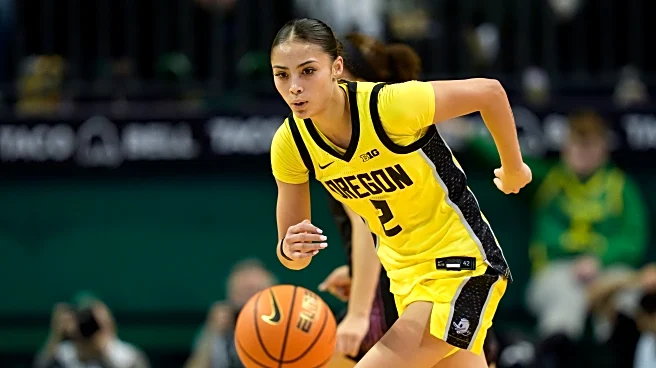Rapid Read • 8 min read
Hawaii is deploying genetically modified mosquitoes to combat the spread of avian malaria, which is threatening the state's rare bird species, particularly the Hawaiian honeycreepers. The initiative involves releasing non-biting, lab-reared male mosquitoes carrying a bacterium that prevents eggs from hatching when they mate with wild females. This effort aims to control the invasive mosquito population that has been decimating native bird populations. The mosquitoes are being released in biodegradable pods via drones and helicopters over the forests of Hawaii. This method is part of a broader conservation strategy to save endangered species like the 'akikiki and 'akeke'e, which have seen drastic population declines due to avian malaria.
AD
The initiative is crucial for the survival of Hawaii's native bird species, which are integral to the ecosystem as pollinators and seed dispersers. The decline of these birds poses a significant threat to biodiversity and the cultural heritage of Hawaii. The use of genetically modified mosquitoes represents a novel approach to conservation, potentially setting a precedent for similar efforts worldwide. If successful, this method could provide a sustainable solution to controlling mosquito populations without harming other native insect species. The project also highlights the challenges of balancing ecological conservation with technological interventions.
The success of this initiative will be monitored over the coming year to assess its impact on mosquito populations and the recovery of bird species. If effective, it could lead to broader applications of this technique in other regions facing similar ecological threats. The project also involves ongoing community engagement and regulatory processes to address public concerns about releasing genetically modified organisms into the environment. Conservationists hope that controlling mosquito populations will allow bird species to recover and potentially develop resistance to avian malaria.
This initiative raises ethical and ecological questions about the use of genetic modification in wildlife conservation. While mosquitoes are not native to Hawaii and pose a significant threat, the long-term ecological impacts of such interventions remain uncertain. The project underscores the need for careful consideration of the potential consequences of introducing genetically modified organisms into natural ecosystems.
AD
More Stories You Might Enjoy











